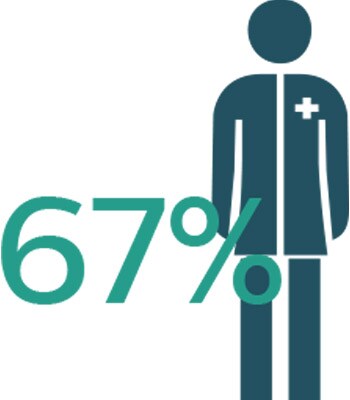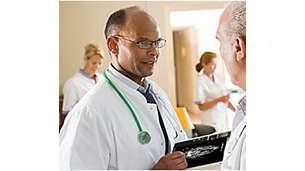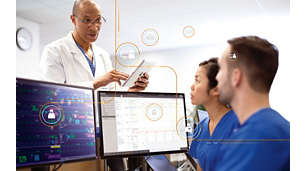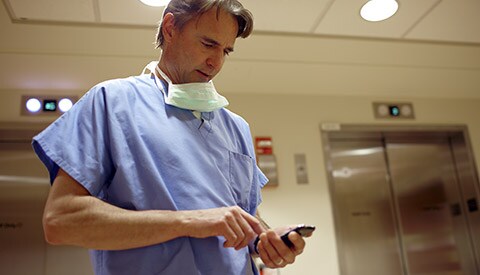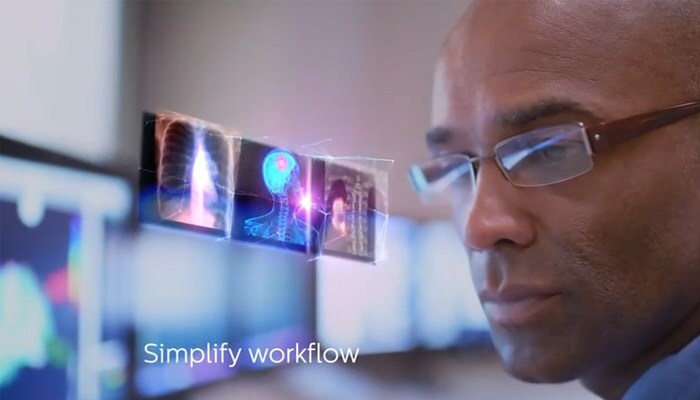Provide access virtually anywhere
Patient centered care is driving an increasing amount of collaboration across clinical departments, caregivers and specialists. This growing need for collaboration is coupled with an increasingly mobile clinical workforce. Clinicians are eager to expand points of access to patient data so that they can follow patient progress, collaborate with colleagues, and review patient images and data outside hospital walls. Our strategy for mobile healthcare focuses on three areas: Learn more about our innovative mobile medical apps that connect care to information that matters.
Mobile medical apps – software that can be downloaded onto phones, tablets and other off-the-shelf mobile devices -- hold promise to enhance patient care. However, they also can be a security risk or compromise patient privacy. To promote safe use, you need a clear policy that defines access, and medical apps that are built with secure patient data access in mind.
